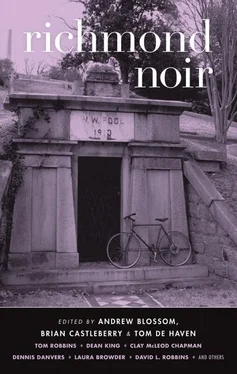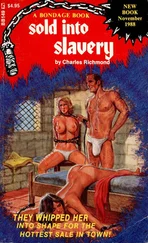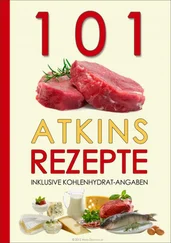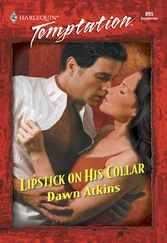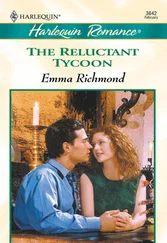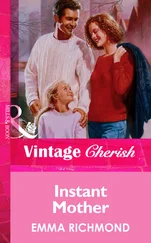X. Atkins - Richmond Noir
Здесь есть возможность читать онлайн «X. Atkins - Richmond Noir» весь текст электронной книги совершенно бесплатно (целиком полную версию без сокращений). В некоторых случаях можно слушать аудио, скачать через торрент в формате fb2 и присутствует краткое содержание. Город: New York, Год выпуска: 2010, ISBN: 2010, Издательство: Akashic Books, Жанр: Детектив, на английском языке. Описание произведения, (предисловие) а так же отзывы посетителей доступны на портале библиотеки ЛибКат.
- Название:Richmond Noir
- Автор:
- Издательство:Akashic Books
- Жанр:
- Год:2010
- Город:New York
- ISBN:978-1-933354-98-9
- Рейтинг книги:4 / 5. Голосов: 1
-
Избранное:Добавить в избранное
- Отзывы:
-
Ваша оценка:
- 80
- 1
- 2
- 3
- 4
- 5
Richmond Noir: краткое содержание, описание и аннотация
Предлагаем к чтению аннотацию, описание, краткое содержание или предисловие (зависит от того, что написал сам автор книги «Richmond Noir»). Если вы не нашли необходимую информацию о книге — напишите в комментариях, мы постараемся отыскать её.
Richmond Noir — читать онлайн бесплатно полную книгу (весь текст) целиком
Ниже представлен текст книги, разбитый по страницам. Система сохранения места последней прочитанной страницы, позволяет с удобством читать онлайн бесплатно книгу «Richmond Noir», без необходимости каждый раз заново искать на чём Вы остановились. Поставьте закладку, и сможете в любой момент перейти на страницу, на которой закончили чтение.
Интервал:
Закладка:
Richmond Noir
Just think of all the people not fortunate enough
to be bom in Richmond, Va.
— Tom Wolfe
Foreword
by Tom Robbins
It may sound odd, but when I think of Richmond, Virginia — or, at least, when I look back on my years in that charming, antebellum, ostensibly conservative town — my thoughts turn frequently to alleys. And considering the images and moods that most people associate with those narrow, secluded, generally unlit and gritty little passageways, it should not then be totally unexpected that my memories of Richmond’s alleys tend to be colored with shades of noir . Which is to say, colored with seamy urban romance and suave big-city vice, the twin elements most responsible for the seductive throb at the murky heart of noir .
Presumably, alleys in other parts of Richmond are quite different in character, but the bohemian/bourgeois/badass Fan District, where I lived, boasts to this day alleyways that are simultaneously inviting and forbidding, elegant and squalid, ominous and suffused with grace. Old, cobblestoned (Stone Age marshmallows in the silver moonshine), lined with wisteria, rose bushes, and carriage houses (servant quarters become artist studios, stables become garages); perfumed by honeysuckle, motor oil, invisible kitchens, brown-bagged beverages, garbage cans, and history; resonant with dog-bark, woo-pitch, bottle-shatter, domestic squabbling, financial plotting (legitimate and otherwise), fervent intellectual discourse, and stray fragments of Southern rock and jazz; they become all the more interesting after nightfall, when secrets — some merely naughty, others more darkly hued — seep increasingly into them from shadowed crannies or the backrooms and walled gardens of abodes along the way.
On scores of hot, sticky, summer nights, with a restless city feeling like the interior of a napalmed watermelon, I walked the alleys of the Fan, sometimes until dawn; and having thus been privy to certain of the secrets they protected, having trusted them with a secret of my own (I was desperately in love with a married woman at the time and fully expecting her armed husband to leap out at me from every spooky nook), it doesn’t exactly surprise me that there is sufficient noir in Richmond — enough hidden larceny, lunacy, and lust — to fuel the fiction of the fine writers who enliven these pages.
Introduction
Negotiating the James
In The Air-Conditioned Nightmare , Henry Miller tosses off a hard-bitten assessment of the City on the James: “I would rather die in Richmond somehow,” he writes, “though God knows Richmond has little enough to offer.” As editors, we like the dying part, and might point out that in its long history, Richmond, Virginia has offered up many of the disparate elements crucial to meaty noir . The city was born amid deception, conspiracy, and violence.
In 1607, after Christopher Newport paddled up the river that would one day be the city’s lifeblood, he installed a wooden cross at the future site of Richmond, claiming the area for England. The local Powhatan rightly perceived the symbolism in his act, but Newport, with the aid of flattery and gifts, convinced them that the cross indicated friendship, not conquest. His lie, soon revealed for what it was, led to conflict — not only between settlers and Native Americans, but also among the settlers themselves. Within two years, a second English expedition, excited by skirmishes with the Powhatan, attacked an exploratory party led by John Smith (yes, that John Smith). When Smith retreated, the Powhatan besieged the unruly colonists once more and killed some number of them. Smith returned, calmed the natives, arrested the English ringleaders, and put them in the stocks. He then forced the remaining men to take up residence in a Native encampment at the site of Newport’s cross. The men revolted, freeing the conspirators and abandoning the site. At that point, Smith gave up, but famously noted in his journal that he’d found no place so pleasant in all of Virginia as that site of consternation and bloodshed. (Oh, and then he was horribly burned in an accident.)
Four centuries later, as Clay McLeod Chapman makes clear in his Belle Isle story, you can’t wander far in Richmond without being reminded by some cast-iron marker that this is where history happened — here’s the church where Patrick Henry declared, “Give me liberty or give me death,” here’s the factory that forged cannonballs and shot during the Civil War, here’s the row of warehouses that churned out America’s tobacco (lately they’ve gone condo), here’s the site of the Negro (read: slave) cemetery, now paved over into a desolate parking lot. Richmond is a city of statues and monuments to the past — Confederate generals mostly. Occasionally you’ll come across something odd, but never anomalous — a statue of tennis player Arthur Ashe, a statue of dancer Bojangles Robinson. Yes, history happened in Richmond, and so did crime, malfeasance, and cruelty. That’s because it’s hard to have the former without the latter. Richmond may be steeped in history, but its residents can seem as ambivalent about that fact — or even ashamed of it — as they are proud.
Sure, Edgar Allan Poe spent a good part of his life in Richmond, and even went so far as to credit it with shaping his identity, as Pir Rothenberg’s story in this volume might remind us. (“I am a Virginian,” Poe wrote, “at least I call myself one, for I have resided all my life, until within the last few years in Richmond.”) Sure, two U.S. presidents lie buried in the hallowed ground of the city’s Hollywood Cemetery. (It’s also home to the grave of Jefferson Davis, President of the Confederacy, as Clint McCown’s tale playfully and darkly points out.) Sure, Thomas Jefferson spent a lot of time in Richmond as governor of the Commonwealth; he was even the architect of its beautiful Capitol building. But Jefferson had to run for his life from Richmond when the British came rolling through during the Revolutionary War; later he found himself put on trial for treason and cowardice by none other than Patrick Henry (yes, that Patrick Henry.)
During the nineteenth century, the city was a-crawl with slingshot-and shotgun-toting gangs — the 4th Street Horribles, the Bumtowners, the Butchertown Cats, and so on — who preyed on shopkeepers and pedestrians and warred with each other. These groups were forebears of the drug gangs that are very much active in Richmond today, and whose presence here in the 1990s earned the River City the distinction of Murder Capital of the United States — a reputation further buoyed by the presence of the Southside Strangler, the first serial killer ever to be executed following a conviction based on DNA evidence. In Richmond, as in many of America’s great cities, history is a mixed bag.
Greater Richmond — which means not only the city itself but also the surrounding suburbanized counties (white flight havens that began to grow in the mid-1950s) — has a population of roughly one million. In other words, Los Angeles it ain’t, and the Philip Marlowes and Jake Gitteses of the world might find its palette a little limited. However, Richmond’s size hasn’t precluded the city from falling victim to its own versions of Chinatown-style political chicanery — like the boardroom schemes and bamboozlements that led to entire sections of Jackson Ward (at the time a poor black neighborhood) and Oregon Hill (at the time a poor white neighborhood) being emptied out and cleaved in two to make way for, respectively, an interstate highway and a commuter bypass. Richmond is well versed in the political buffoonery of the public figure — as Howard Owen reminds us, the city is home not only to a municipal government, but also to the Virginia State Legislature and the governor’s office. It’s a place where a junkie councilman can get pinched buying heroin in a housing project and state legislators can spend whole sessions attempting to define what kind of underwear shall be illegal to wear, where a historic American figure can torpedo his political legacy simply by signing on as mayor and deciding to pick a fight with the school system.
Читать дальшеИнтервал:
Закладка:
Похожие книги на «Richmond Noir»
Представляем Вашему вниманию похожие книги на «Richmond Noir» списком для выбора. Мы отобрали схожую по названию и смыслу литературу в надежде предоставить читателям больше вариантов отыскать новые, интересные, ещё непрочитанные произведения.
Обсуждение, отзывы о книге «Richmond Noir» и просто собственные мнения читателей. Оставьте ваши комментарии, напишите, что Вы думаете о произведении, его смысле или главных героях. Укажите что конкретно понравилось, а что нет, и почему Вы так считаете.
